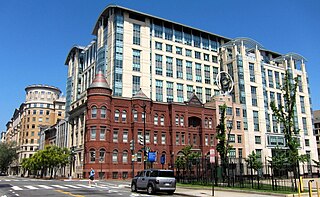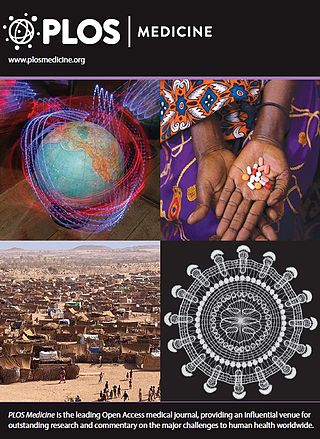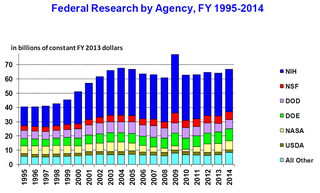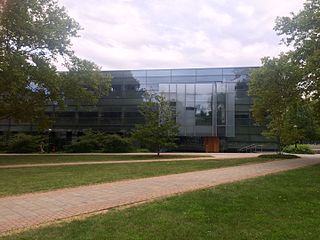
The National Academies of Sciences, Engineering, and Medicine (NASEM), also known as the National Academies, is a congressionally chartered organization that serves as the collective scientific national academy of the United States. The name is used interchangeably in two senses: (1) as an umbrella term or parent organization for its three sub-divisions that operate as quasi-independent honorific learned society member organizations known as the National Academy of Sciences (NAS), the National Academy of Engineering (NAE), and the National Academy of Medicine (NAM); and (2) as the brand for studies and reports issued by the unified operating arm of the three academies originally known as the National Research Council (NRC). The National Academies also serve as public policy advisors, research institutes, think tanks, and public administration consultants on issues of public importance or on request by the government.
Public policy is an institutionalized proposal or a decided set of elements like laws, regulations, guidelines, and actions to solve or address relevant and real-world problems, guided by a conception and often implemented by programs. These policies govern and include various aspects of life such as education, health care, employment, finance, economics, transportation, and all over elements of society .Theimplementation of public policy is known as public administration. Public policy can be considered to be the sum of a government's direct and indirect activities and has been conceptualized in a variety of ways.

Science policy is concerned with the allocation of resources for the conduct of science towards the goal of best serving the public interest. Topics include the funding of science, the careers of scientists, and the translation of scientific discoveries into technological innovation to promote commercial product development, competitiveness, economic growth and economic development. Science policy focuses on knowledge production and role of knowledge networks, collaborations, and the complex distributions of expertise, equipment, and know-how. Understanding the processes and organizational context of generating novel and innovative science and engineering ideas is a core concern of science policy. Science policy topics include weapons development, health care and environmental monitoring.
The Delphi method or Delphi technique is a structured communication technique or method, originally developed as a systematic, interactive forecasting method which relies on a panel of experts. The technique can also be adapted for use in face-to-face meetings, and is then called mini-Delphi. Delphi has been widely used for business forecasting and has certain advantages over another structured forecasting approach, prediction markets.

Science and technology studies (STS) or science, technology, and society is an interdisciplinary field that examines the creation, development, and consequences of science and technology in their historical, cultural, and social contexts.
The ethics of technology is a sub-field of ethics addressing the ethical questions specific to the Technology Age, the transitional shift in society wherein personal computers and subsequent devices provide for the quick and easy transfer of information. Technology ethics is the application of ethical thinking to the growing concerns of technology as new technologies continue to rise in prominence.

PLOS Medicine is a peer-reviewed weekly medical journal covering the full spectrum of the medical sciences. It began operation on October 19, 2004, as the second journal of the Public Library of Science (PLOS), a non-profit open access publisher. All content in PLOS Medicine is published under the Creative Commons "by-attribution" license. To fund the journal, the publication's business model requires in most cases that authors pay publication fees. The journal was published online and in a printed format until 2005 and is now only published online. The journal's acting chief editor is Clare Stone, who replaced the previous chief editor, Larry Peiperl, in 2018.

The Academy of Medical Sciences is an organisation established in the UK in 1998. It is one of the four UK National Academies, the others being the British Academy, the Royal Academy of Engineering and the Royal Society.

The National Science Board (NSB) of the United States establishes the policies of the National Science Foundation (NSF) within the framework of applicable national policies set forth by the president and the Congress. The NSB also serves as an independent policy advisory body to the president and Congress on science and engineering research and education issues. The board has a statutory obligation to "...render to the President and to the Congress reports on specific, individual policy matters related to science and engineering and education in science engineering, as Congress or the President determines the need for such reports,". All board members are presidential appointees. NSF's director serves as an ex officio 25th member and is appointed by the president and confirmed by the US Senate.

The Hastings Center is an independent, nonpartisan bioethics research institute and think tank based in Garrison, New York. It was instrumental in establishing the field of bioethics and is among the most prestigious bioethics and health policy institutes in the world.
The American Institute of Biological Sciences (AIBS) is a nonprofit scientific public charitable organization. The organization's mission is to promote the use of science to inform decision-making and advance biology for the benefit of science and society.
Public participation, also known as citizen participation or patient and public involvement, is the inclusion of the public in the activities of any organization or project. Public participation is similar to but more inclusive than stakeholder engagement.
The National Academy of Engineering (NAE) is an American nonprofit, non-governmental organization. The National Academy of Engineering is part of the National Academies of Sciences, Engineering, and Medicine, along with the National Academy of Sciences (NAS), the National Academy of Medicine, and the National Research Council.
The Science Communication Observatory is a Special Research Centre attached to the Department of Communication of the Pompeu Fabra University in Barcelona, Spain, set up in 1994. This centre is specialized in the study and analysis of the transmission of scientific, medical, environmental and technological knowledge to society. The journalist Vladimir de Semir, associated professor of Science Journalism at the Pompeu Fabra University, was the founder and is the current director of the centre. A multidisciplinary team of researchers coming from different backgrounds is working on various lines of research: science communication; popularization of sciences, risk and crisis communication; science communication and knowledge representation; journalism specialized in science and technology; scientific discourse analysis; health and medicine in the daily press; relationships between science journals and mass media; history of science communication; public understanding of science; gender and science in the mass media, promotion of scientific vocations, science museology, etc.

The Government Office for Science is a science advisory office in the UK Government. The office advises the Government on policy and decision-making based on science and long-term thinking. It has been led by Professor Dame Angela McLean, the Government Chief Scientific Adviser, since 23 February 2023.
The Nuffield Council on Bioethics is a UK-based independent charitable body, which examines and reports on bioethical issues raised by new advances in biological and medical research. Established in 1991, the Council is funded by the Nuffield Foundation, the Medical Research Council and the Wellcome Trust. The Council has been described by the media as a 'leading ethics watchdog', which 'never shrinks from the unthinkable'.

The science policy of the United States is the responsibility of many organizations throughout the federal government. Much of the large-scale policy is made through the legislative budget process of enacting the yearly federal budget, although there are other legislative issues that directly involve science, such as energy policy, climate change, and stem cell research. Further decisions are made by the various federal agencies which spend the funds allocated by Congress, either on in-house research or by granting funds to outside organizations and researchers.
Science diplomacy is the use of scientific collaborations among nations to address common problems and to build constructive international partnerships. Science diplomacy is a form of new diplomacy and has become an umbrella term to describe a number of formal or informal technical, research-based, academic or engineering exchanges, within the general field of international relations and the emerging field of global policy making.

The Center for Information Technology Policy (CITP) at Princeton University is a leading interdisciplinary research center, dedicated to exploring the intersection of technology, engineering, public policy, and the social sciences. Faculty, students, and other researchers come from a variety of disciplines, including Computer Science, Economics, Politics, Engineering, Sociology, and the Princeton School of Public and International Affairs.
An infodemic is a rapid and far-reaching spread of both accurate and inaccurate information about certain issues. The word is a portmanteau of "information" and "epidemic" and is used as a metaphor to describe how misinformation and disinformation can spread like a virus from person to person and affect people like a disease. This term, originally coined in 2003 by David Rothkopf, rose to prominence in 2020 during the COVID-19 pandemic.










